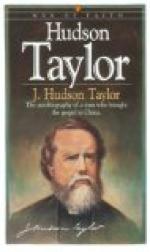=The Mahicans, the Delawares and the Iroquois.= The early French missionaries refer to the “nine nations of Manhinyans, gathered between Manhattan and the environs of Quebec.” These several nations have never been accurately designated, although certain general divisions appear under the titles of Mohegan, Wappinger, Sequins, etc. “The government of the Mahicans was a democracy. The office was hereditary by the lineage of the wife; that is, the selection of a successor on the death of the chief, was confined to the female branch of the family.” According to Ruttenber, the precise relation between the Mahicans of the Hudson and the Mohegans under Uncas, the Pequot chief, is not known. In a foot-note to this statement, he says: “The identity of name between the Mahicans and Mohegans, induces the belief that all these tribes belonged to the same stock,—although they differed in dialect, in territory, and in their alliances.” The two words, therefore, must not be confounded.
* * *
Round about the Indian village
Spread the meadows and the cornfields,
Stood the groves of singing pine trees,
And beyond them stood the forest,
Henry W. Longfellow.
* * *
It is also pleasant to remember that the Mahicans as a tribe were true and faithful to us during the war of the Revolution, and when the six nations met in council at Oswego, at the request of Guy Johnson and other officers of the British army, “to eat the flesh and drink the blood of a Bostonian,” Hendrick, the Mahican, made the pledge for his tribe at Albany, almost in the eloquent words of Ruth to Naomi, “Thy people shall be our people, and whither thou goest we will be at your side.”
=The Mourdener’s Kill=, with its sad story of a girl tied by Indians to a horse and dragged through the valley, flows into the Hudson above Castleton. Two miles above this near the steamer channel will be seen Staats Island on the east, with an old stone house, said to be next in antiquity to the old Van Rensselaer House, opposite Albany. It is also a fact that this property passed directly to the ancestors of the present family, the only property in this vicinity never owned by the lord of the manor. Opposite the old stone house, the point on the west bank is known as Parda Hook, where it is said a horse was once drowned in a horse-race on the ice, and hence the name Parda, for the old Hollanders along the Hudson seemed to have had a musical ear, and delighted in accumulating syllables. (The word pard is used in Spenser for spotted horse, and still survives in the word leopard.)




